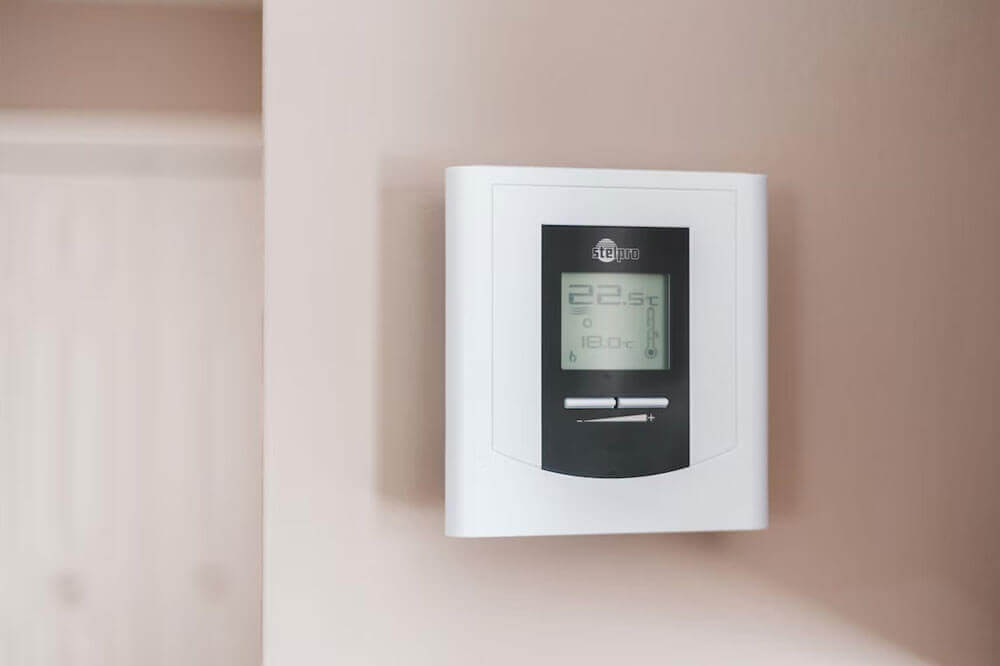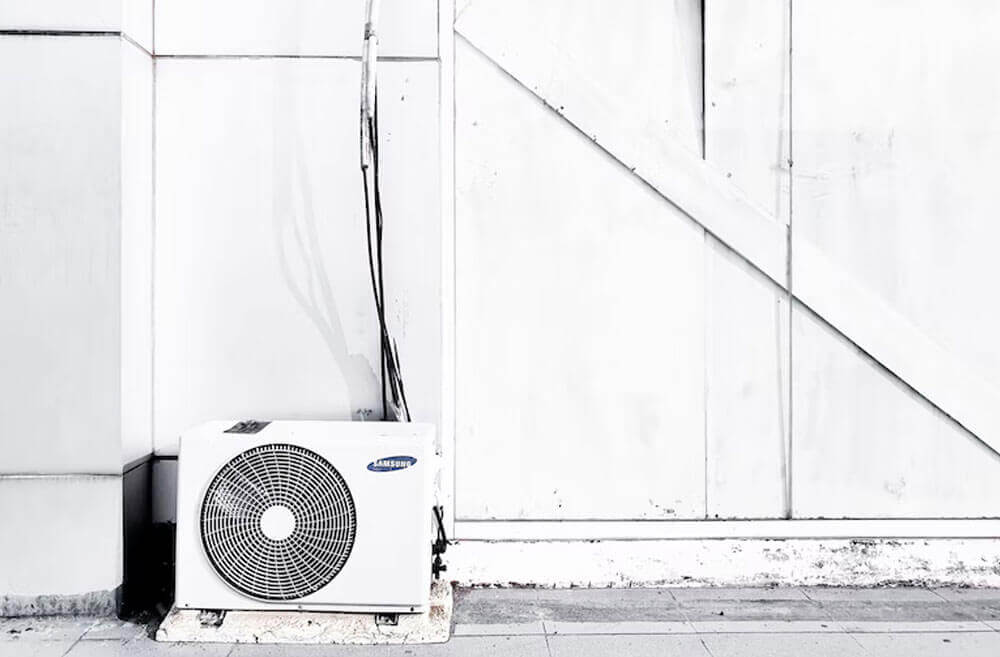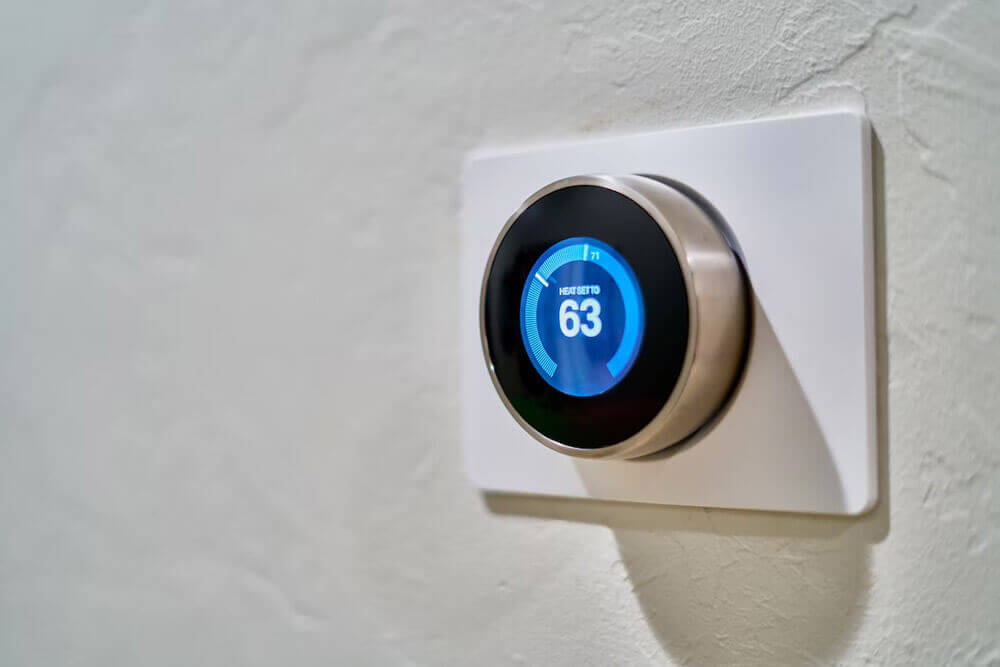By Go Green Heating & Air Staff
Updated July, 2025 | 8-Minute Read
Your air conditioning system is crucial for delivering comfort throughout your home. This is especially true during the hot summer months, but Colorado’s unpredictable climate means you might have days during the cooler months that also need AC. That’s why you need your air conditioning system to stay in tip-top shape, making maintenance and AC repair in Denver a year-round priority.
When your AC starts blowing warm air, it can be frustrating. Your comfort level was already of concern, and now you’re adding the stress of HVAC repair on top of it. There are a number of different things that can cause your air conditioner to act this way, so it’s important not to jump to the worst-case scenario right away. From minor maintenance to serious system failures, it’s critical to learn how to troubleshoot. This can help you get some solutions to get it running efficiently again right away, or help you understand that it’s time to call in the professionals. If you’re wondering, “Why is my AC blowing warm air?” or “Why is my AC not cooling?” this guide will help you find answers.
Recent Example:
In 2024, a Denver homeowner contacted us when their AC started blowing warm air during a July heatwave. After a quick inspection, our technician discovered a clogged air filter was restricting airflow, a simple fix that restored cool comfort within the hour.
Why is My AC Blowing Hot Air? What to Do
If you’ve noticed that your AC started blowing warm air, you may be asking yourself, “Why is my AC blowing hot air?” There are several reasons why this can happen, and understanding the root cause is the first step in knowing how to fix an AC blowing hot air.
Inspect Your Thermostat
The thermostat is the nerve center of your air conditioning system, so this is the first place to start looking if there is something going on with your AC. If it’s not set correctly or otherwise malfunctioning, it can lead to warmer air coming from your vents. As simple as this sounds, be sure to check whether the settings are currently set to “heat” instead of “cool.” It’s a common mistake that happens more often than you think and is a very simple fix. Also, check the batteries in the thermostat to make sure they still have juice.
There may also be malfunctioning sensors or internal wiring issues going on. If the thermostat is older or you find it’s constantly not working properly, consider upgrading it to a programmable or smart thermostat. These modern upgrades can make a world of difference in the heating and cooling of your home, not only from a convenience standpoint, but from a consistency standpoint as well. This will enable you to set the temperature of your rooms remotely, and some systems can even adjust the temperature for each room.
Check Your Filters
Another common culprit can be the air filters in your system. Air filters trap the dust, dirt, and other debris that flows through your system to make sure that you maintain good air quality throughout your home. This also plays a key role in making sure your system is performing correctly. When they become clogged, airflow gets restricted, causing the AC unit to overwork itself and blow warm air.
Numerous things can cause these filters to get clogged, but the most common one is just the simple passage of time. Your AC unit is working to keep your home comfortable, but it’s also working to make sure the air you breathe is of good quality. If you haven’t changed the filter for a while or there hasn’t been regular maintenance on the system, this can cause the filters to clog up. Operating in a dusty environment can also lead to the filters clogging more quickly. Check your filters monthly and replace them every three months or as needed, depending on the usage and the manufacturer’s recommendation. Be sure to use high-quality filters that match your system’s specifications.
Industry Tip:
According to ENERGY STAR, replacing your air filter regularly is one of the most important maintenance tasks to ensure the efficiency of your air conditioner.
Watch for Leaks & Freezing
There are a lot of components to your AC unit, and they need to be maintained. If they aren’t properly inspected or maintained, then they can break down like any machine. One of the most vital components of the cooling process is the refrigerant. If there’s a leak, the AC will not have enough refrigerant to cool the air properly. If there has been physical damage to the system or improper installation, leaks might be more likely to occur. However, even normal wear and tear can lead to refrigerant leaks. If you notice a leak, be sure to call a certified HVAC technician to locate and properly repair the leak.
The evaporator coil is another crucial component, as it absorbs the heat from the indoor air. However, if this coil becomes frozen, it won’t be able to perform its function properly, which can lead to warm air being blown into your home. This can be caused by restricted airflow from dirty filters or blocked vents, or when refrigerant levels get too low. This can also occur if you run the AC unit at a temperature that is too low for an extended period of time. To fix this, you must turn off the AC until the coils are completely thawed. Be sure to check and clean your air filter and make sure that all vents are open and unblocked. Be sure to regularly inspect your system to prevent further leaks or freezing up, and consult a technician if problems continue.
Watch for Electrical Issues
The electrical components of the air conditioning system, including the capacitors and relays, play a critical role in its operation. If any of these parts fail or aren’t working optimally, your system can malfunction and blow warm air into your home. The electrical system in your AC unit is sensitive and can stop performing as it should for a variety of reasons. Power surges and electrical failures can harm and damage your system, and so can corroded or loose wiring. These parts can also become faulty just through the simple aging process. Consider using surge protectors for your system to help prevent any electrical damage in the future.
Make sure to inspect your circuit breaker and reset it, if necessary. This is another easy fix that often gets overlooked. Do not work with electrical components on your own. Along with the electrical components, your compressor is also vital because it’s responsible for circulating refrigerant. If it fails, the entire cooling process is disrupted. This is tied to your electrical system and can also be caused by common electrical issues. It can also become faulty through simple wear and tear. Schedule an HVAC technician to diagnose and replace faulty electrical components.
Dirty Condensers & Compressor Issues
There are some components of your system that might need maintenance because of dirt and dust. Outdoors, the condenser unit is the component that releases heat absorbed from your home. If it becomes dirty or blocked, that heat won’t be expelled properly, which can cause warm air to circulate back inside the home. This blockage doesn’t have to be from dirt, as debris like grass and leaves surrounding the unit can also cause issues. Routine inspections and maintenance around the outdoor unit can go a long way in preventing this type of blockage. Simply remove any debris or vegetation around the unit to ensure proper airflow, and turn off the AC and carefully clean it.
The compressor is another component, and it’s vital to the operation of your air conditioner. The heart of your AC system, the compressor, is responsible for circulating refrigerant. If it fails, the entire cooling system could be completely disrupted. Many of these issues are caused by electrical issues or overheating, but they can also be caused by imbalances in the refrigerant and simple age-related wear and tear. Schedule a professional inspection to determine if the compressor can be repaired or if it needs to be replaced. Annual professional maintenance can help keep your condenser unit and compressor in optimal condition. This regular maintenance can also extend the life of your unit.
Ductwork & Vents
Inside the home, your ductwork is responsible for distributing cooled air. If there’s an issue where cooled air isn’t reaching certain areas of your home, or where warm air is mixing with cooled air, it could be a problem with the ductwork. These issues can arise due to leaks or holes in the ductwork, poor insulation in attics or crawl spaces, or simply blocked or dirty ducts. Inspect your ductwork for visible damages or leaks, and ensure those leaks get sealed with sealant or the proper duct tape.
Another key factor in effectively cooling your home is proper airflow. If your vents are closed or have something blocking them, that air will not circulate properly. This improper air flow may lead to warm air building up inside your home. This can be caused by the vents simply being blocked by furniture, curtains, or other objects obstructing their ability to release the air. This can also be caused by deliberately closed vents in unused rooms. This can be fixed by a simple walkthrough of your home to check and make sure all of the vents are unobstructed. Avoid closing too many vents, as it can cause a strain on the system.
Customer Testimonial:
“Go Green Heating & Air Conditioning fixed our AC quickly during a heatwave. The technician explained everything clearly and gave us tips to prevent future problems. Highly recommend!”
— Sarah T., Denver
Why Choose Go Green Heating & Air?
- NATE-Certified Technicians
- Locally Owned and Operated in Denver for Over 20 Years
- BBB Accredited and Fully Licensed
- Dozens of 5-Star Reviews
Your AC unit may be blowing warm air for any number of reasons. If you feel like you’ve troubleshot the issue but the problems persist, it might be time to get a professional set of eyes on it. It might be as basic as a simple thermostat issue, but it might also be time for a new system.
Fill out our contact form or call 303-731-4417 today for expert AC repair and trusted advice.
Go Green Heating & Air Conditioning – Serving Denver and surrounding communities with honesty, integrity, and expert service.
About the Author
Denver Heating & Air Conditioning has served homeowners throughout the Denver metro area with professional HVAC installation, repair, and maintenance services for over 20 years. Our team includes NATE-certified technicians who specialize in indoor comfort solutions, energy efficiency, and whole-home air quality.





